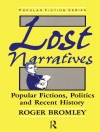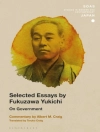Essays studying the relationship between literariness and form in medieval texts.
The twenty-first century has witnessed the re-emergence of various kinds of literary formalism, and one project that characterizes most of these diverse formalisms is the effort to distinguish what is precisely
literary about their objects of study. The presumed relation between
form and the
literary that this project presupposes, however, raises questions that still need to be addressed. What is it about form that produces the category of the literary? What precisely is literary about literary form? Can the literary be defined beyond form?
This volume explores these questions in the historical and geographical frame of late medieval Britain, across vaunted literary works such as the
Franklin’s Tale, Sir Gawain and the Green Knight, and the Towneley
Shepherds’ Plays, and presumed ‘non-literary’ texts, such as books of hours. By studying texts from a period long priorto literary formalism – indeed, before any fully articulated theory of the literary – the essays gathered here aim to rethink the relationship between form and the literary.
Robert J. Meyer-Lee is Margaret W. Pepperdene Distinguished Scholar-in-Residence at Agnes Scott College; Catherine Sanok is an Associate Professor of English and Women’s Studies at the University of Michigan.
Contributors: Anke Bernau, Jessica Brantley, Seeta Chaganti, Shannon Gayk, Kathryn Kerby-Fulton, Andrew Klein, Robert J. Meyer-Lee, Ingrid Nelson, Maura Nolan, Sarah Elliott Novacich, Catherine Sanok, Emily Steiner, Claire M. Waters.
Cuprins
Introduction: The Literary through – or beyond? – Form – Catherine Sanok and Robert J Meyer-Lee
What’s the Use? Marian Miracles and the Workings of the Literary – Claire M. Waters
Form’s Practice: Lyrics, Grammars, and the Medieval Idea of the Literary – Ingrid Nelson
Forms of the Hours in Late Medieval England – Jessica Brantley
Rhymed Alliterative Verse in
Mise en page Transition: Two Case Studies in English Poetic Hybridity – Andrew Klein
Rhymed Alliterative Verse in
Mise en page Transition: Two Case Studies in English Poetic Hybridity – Kathryn Kerby-Fulton
Idiot Psalms: Sound, Style, and the Performance of the Literary in the Towneley
Shepherds’ Plays – Shannon Gayk
Inaudible Music – Sarah Elliott Novacich
Translating Form with
Patience – Anke Bernau
Terpsichorean Form: Geoffrey Chaucer’s Franklin’s Tale and Robert Smithson’s
Spiral Jetty – Seeta Chaganti
Illusion and Aspect in the Construction of the Face: Chaucerian Individuals, Chaucerian Types – Maura Nolan
Collecting, Violence, Literature: Richard of Bury’s
Philobiblon and the Forms of Literary History – Emily Steiner
Despre autor
KATHRYN KERBY-FULTON is Professor Emerita, University of Notre Dame.












